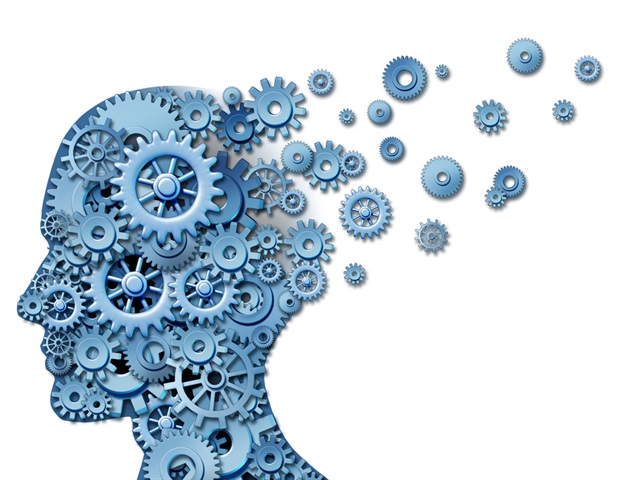
[ad_1]
Innovative research aimed to possibly rejuvenate brain cells will be explored by six international researchers with the goal of discovering effective drugs for people with early stage Alzheimer’s disease and other dementias. All of the research is being funded by the Alzheimer’s Association’s Part the Cloud to RESCUE (REverse, reStore, Cease and UndErstand) Brain Cell Degeneration in Alzheimer’s disease program.
Each of the awardees will receive $1 million over two years to support their research. Since 2012, Part the Cloud has raised more than $29 million to invest in the Alzheimer’s Association research grants. These are “high risk” science projects that need seed funding as the researchers test their ideas and build initial supportive data. The supportive data will allow scientists to seek broader funding from the National Institutes of Health or other sources for larger clinical trials to more definitively test safety and effectiveness.
The grants are funded through the Alzheimer’s Association’s Part the Cloud program. The primary focus is to advance pioneering ideas for early phase human trials – Phase I or Phase 2a proof of concept – targeting brain cell health in Alzheimer’s. The destruction of the brain’s nerve cells causes memory failure, personality changes, problems carrying out daily activities and other symptoms of Alzheimer’s disease dementia.
“Currently, there are no truly effective treatments or preventions for Alzheimer’s disease,” said Maria C. Carrillo, Ph.D., Alzheimer’s Association chief science officer. “With the aging of the global population, the urgency has never been greater to change that situation and the sooner the better.”
“These Part the Cloud to RESCUE grants encourage discovery and development of a wide range of interventions that might someday be viable treatments for people with or at risk for Alzheimer’s. We are expanding the Alzheimer’s drug pipeline at the front end – Phase 1 and 2 clinical trials – where it is most desperately needed,” Carrillo said. “The research funded by these grants will not only advance possible treatments, but also accelerate our understanding of processes associated with Alzheimer’s and related dementias, as well as other diseases that impact the brain.”
The new grants are awarded to:
Roberta Diaz Brinton, Ph.D., University of Arizona (Tucson, AZ)
This phase 2a study will test whether allopregnanolone, an important hormone in brain function, is able to restore brain cell function in people with Alzheimer’s.
Rafael de la Torre, Pharm.D., Ph.D., Hospital del Mar Medical Research Institute (Barcelona, Spain)
A phase 1 study to test the ability of high dose epigallocatechin gallate (EGCG), an organic compound found in green tea with antioxidant and anti-inflammatory properties known to regulate insulin signals in cells, to reverse cognitive changes in people with early stage Alzheimer’s. The study also includes a lifestyle intervention of diet, exercise and cognitive training that will be tested with the EGCG in a low income, low education community.
Xue Hua, Ph.D., M3 Biotechnology, Inc (Seattle, WA)
This phase 2 proof-of-concept study will evaluate NDX-1017 to determine its potential to treat Alzheimer’s disease and dementia. NDX-1017 is a novel compound focused on regeneration, with a potential to slow, halt or reverse the effects of Alzheimer’s disease, rather than only alleviating symptoms.
Paul A. Newhouse, M.D., Vanderbilt University (Nashville, TN)
A phase 2a study of a new drug, M1-PAM VU319, to improve brain cell communications that could boost memory and attention in people with mild cognitive impairment (MCI). This phase 2a clinical trial will test the drug for the first time in people with MCI.
Stephen M. Strittmatter, M.D., Ph.D., Yale University (New Haven, CT)
Targeting a relatively new approach, this phase 1b study will test a compound, mGluR5 SAM, to target brain cell communication systems for improved brain cell health.
Intent-to-Fund: Raymond Tesi, M.D., INmune Bio (La Jolla, CA)
This phase 1 study will evaluate a new compound, XPRO1595, which aims to reduce inflammation and reverse brain cell death.
Part the Cloud was founded by philanthropist Michaela “Mikey” Hoag after losing her father to younger-onset Alzheimer’s. In partnership with the Alzheimer’s Association, the Part the Cloud movement addresses the critical need to support promising early phase clinical trials to help accelerate the transition of findings from the laboratory into possible therapies.
Part the Cloud is a research funding effort from the Alzheimer’s Association, the world’s leading nonprofit funder of Alzheimer’s and dementia research. The Association is currently investing over $160 million in more than 450 projects in 25 countries. Since 1982, the Association has invested over $435 million to more than 2,900 scientific investigations.
[ad_2]
Source link